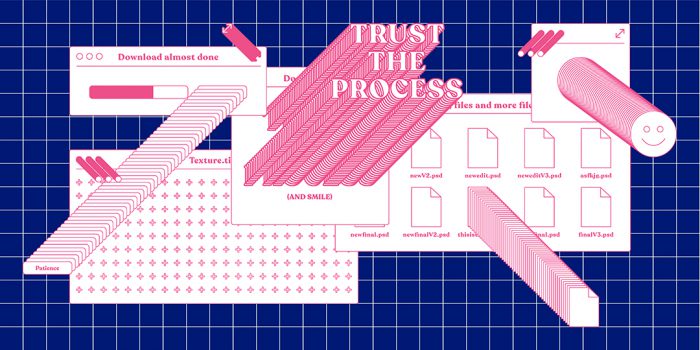Design Competitions: Opportunity or Oppression?
Picture this. You are invited to design a logo/poster/book cover/t-shirt for a business. You and hundreds of other people submit designs. The best designs are put on a shortlist, then a final design is chosen. That designer is granted exposure and financial reward, but they’ll also be required to hand over full copyright of the design. Everyone else gets nothin’.
Does this sound tempting?
Now think about this same scenario again but imagine that the competition is to design a poster for your favourite band. How do you feel about this now? Imagine it yet again but this time the entity is a multinational publisher for a book that will most likely be a best seller. Does this have a different edge now?
It’s interesting to think about which is a more palatable scenario, if any, and why.
Taking part in competitions can be a great opportunity for design students and graduates to practice their craft, answer a brief, be part of a design community and have their work assessed by someone other than a family member. And maybe, just maybe, win the damn thing and get that pay day and exposure they dream about. What a great thing to mention to a potential employer!
That’s the bright side of the coin, but it’s also worth taking a second to look more broadly at the other side of the argument. The “client” is getting to choose between hundreds of designs without having to pay for that choice. Only the winner gets the pay day. Some might say this equates to free-pitching or crowd sourcing, but here’s the thing—the prize probably doesn’t equate with what the going rate is for a professional designer to do the job. Nor what the costs would involve for hand over of full copyright.
Throughout my career as a designer and teacher at Shillington, I’ve seen countless opportunities for designers that masquerade as free labour. The knock on effects of design competitions are interesting to consider. Do they lower the value of design in general? Does this in turn effect what design professionals can charge for their work? Does this ultimately reduce the opportunity for design graduates to find well paid permanent work?
Graphic designers are not the only creative professionals that are invited to take part in competitions. Writers, musicians, architects, advertising creatives, artists, dancers are all asked to compete and produce a finished piece of work that only the winner receives payment and accolades for. People love and feel entitled to choice—especially when it comes to creative output. And so, it seems those with a creative profession are prime targets for competitions. Think about it. You’d never see a crowd-sourced competition for a cup of coffee, a new fence, or a tax return.
Creative services are used in many different ways by clients, but I would argue that one of the defining things about graphic design is that the product we create will invariably lead to some kind of financial gain for the client. A t-shirt promotes the band and sells more downloads of their music. A book cover entices us to buy the book. A logo provides a memorable and recognisable impression of that business and entices continued patronage. If our clients are expecting financial reward that results from a design, it’s not unreasonable for the designer to expect financial reward for their part in this equation.
It’s worth asking the question: ‘Does the client have the means to engage a designer to produce the work professionally?” If they do, you can probably bet that the competition is either a money saving or marketing exercise, not a philanthropic gesture to give young designers a chance.
If opportunity and exposure are what you are after, is there another way to achieve this? For example, there may be a not for profit organisation that desperately needs design expertise. Might this be a better use of your time? Not only would you end up with a real-world design piece, you would have gained valuable experience working for a client including taking and responding to a brief, listening to feedback, working out how to solve problems with the design and collaborating with the client to achieve the best possible result. This is the kind of experience that potential employers will respond to, and could be a much greater career pay-off.
At Shillington, we do encourage our students and recent grads to participate in competitions, but to also think long and hard about the pay-off. Before embarking on taking part in any design competition, it’s important to weigh up what you think the positive outcomes will be for you (particularly if you are not the winner) and whether these outweigh some of these broader issues.
Want to win some amazing prizes and stay in the loop with all things Shillington? Sign up to our newsletter to automatically go in the draw.








